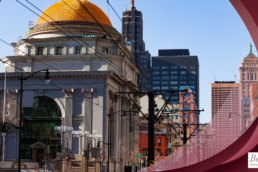Embassy Directive Disrupts Student Visa Scheduling
On May 27, 2025, the U.S. State Department issued a classified directive instructing embassies and consulates worldwide to pause new interview appointments for F, M, and J student visas. While previously scheduled interviews will proceed, no new ones may be booked until further notice.
As reported by Politico and CNN, the pause supports expanded social media screening as part of broader “extreme vetting” measures. With international students contributing significantly to the U.S. economy, the freeze has sparked concern over access, privacy, and due process.
What Is Social Media Vetting?
Since 2019, most visa applicants have had to list their social media handles from the past five years on visa applications. The Department of State and Department of Homeland Security screen this information for potential security threats, but what constitutes problematic content remains unclear.
What’s Changing?
Proposed changes signal a deeper and more invasive layer of scrutiny:
- Content Monitoring: Posts, likes, comments, even if not authored by the applicant, may be analyzed.
- AI Tools: Algorithms may flag keywords, reposted material, or digital associations.
- Ideological Filters: Officers could scrutinize political or religious views under the guise of national security.
- Academic Vetting: Applicants’ fields of study or professor affiliations may be examined for “sensitive” topics.
- Retroactive Reviews: Already-issued visas could be reviewed and potentially revoked.
- Increased Pressure on Schools: SEVP-certified schools may be expected to monitor and report student activity.
- Longer Processing: Waivable interviews may become mandatory again, increasing waiting times and delaying entry.
Implications for Students and Schools
Students could face delays or denials based on how their online activity is interpreted, even without any misconduct. This may lead to self-censorship and heightened anxiety, especially around international travel, which now carries more risk. The pause also threatens universities already struggling with enrollment.
What This Means for Current Visa Holders
If you already have a visa appointment scheduled, you can still attend it as planned. Students who are already present in the U.S. and have ben admitted in F, M, or J status are still considered lawfully present. However, if you fall into one of these visa categories and need to depart the U.S. for any reason, it’s critical to consider reentry plans. If your visa stamp has expired, you will not be able to return until the government resumes scheduling new appointments. For many students, this means it may be wise to avoid international travel soon.
Legal and Policy Concerns
This trend reflects the post-9/11 expansion of data sharing and security oversight under laws like the Homeland Security Act of 2002. But without clear standards, the changes risk enabling subjective visa denials, over-reporting by schools, and erosion of free speech and academic freedom.
Practical Advice for Students and Institutions
Students should avoid inflammatory content online, including passive interactions like liking or sharing. Privacy settings should be reviewed with the assumption that online activity is visible. Schools should inform students of travel risks, maintain SEVIS compliance, and consult legal counsel. With digital vetting playing a larger role in visa decisions, professional guidance can help mitigate risks.
Preparing for What’s Ahead
This policy shift touches not only immigration, but also education, privacy, and civil liberties. As digital surveillance expands, the U.S. risks diminishing its appeal as a global education leader. For students, this freeze may mark the beginning of broader changes. Staying informed and prepared is critical.
If you have concerns about how these developments may affect your visa, travel plans, or online presence, contact our office today to schedule a consultation with one of our experienced immigration attorneys.
Ready to have Berardi on your side?
Whether you’re a business looking to hire or a professional hoping to relocate, immigration law can be complicated. But you don’t have to do it alone. Put our experience to work for you.



